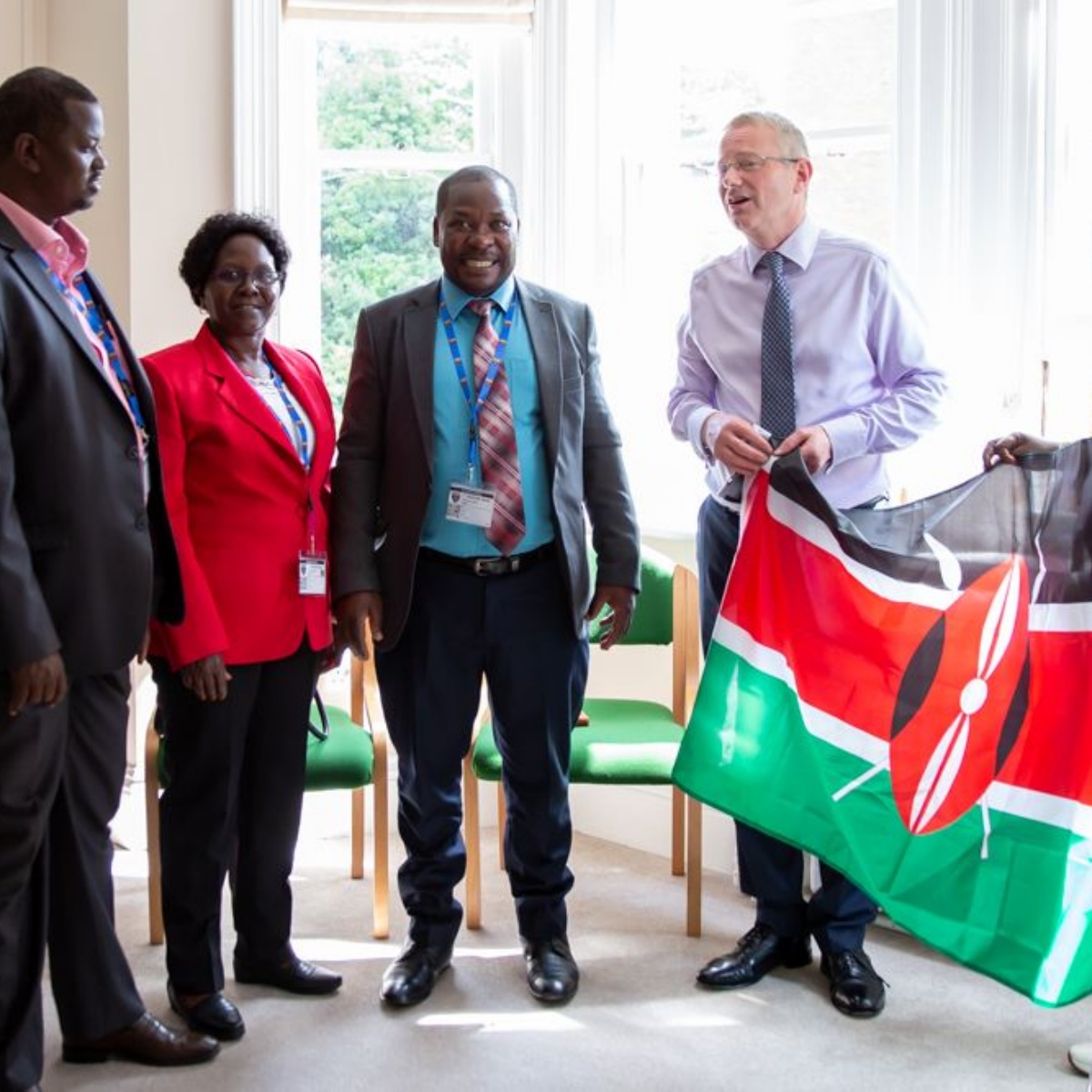Kenyan MPs visit St Benedict's

A delegation of eight Kenyan Members of Parliament visited St Benedict’s School on 21st June, as part of a fact-finding mission to learn about British education. This gave our Politics A-level students an excellent opportunity to compare the Kenyan and the UK education systems.

The MPs were from Kenya’s ruling party as well as from the opposition, and included members of the country’s Education, Sports and Culture Committee. The aim of their UK visit was to establish partnerships and collaboration on universal issues, and to discuss what we have in common.
As I reflect on this enriching experience, it is evident that continued dialogue and exchange of ideas between nations definitively contributes to a broader understanding of educational and political systems worldwide, ultimately leading to enhanced cooperation and progress. (Politics A-level student, Angela G)
Over the course of their morning at St Benedict’s, the MPs first met with the Headmaster, who said: “We discussed many aspects of education and they were particularly interested in our approach to academic matters and pastoral care, as well as our holistic approach, our emphasis on co-curricular engagement and the fact we are a faith school. It was good to meet them and to hear about their own insights and experience of education in Kenya.”
The leader of the delegation, the Hon. Jerusha Momany, MP, whose work centres on education policies, social programmes, and gender equality, commented: “We had a very interesting visit to St Benedict’s and enjoyed meeting the students and teachers. The academic standards, culture, and the way the school is managed are very impressive.”
The Hon. Peter Orero, MP, who is a member of Kenya’s Education Committee and is based in Nairobi, added: “What stands out is the holistic education the students receive – the co-curricular provision as well as the excellent academic programme.”
Angela G. an A-level Politics student, reports:
St Benedict's Politics students had the privilege of meeting with Kenyan Members of Parliament, specifically from the Education Committee, to discuss various aspects of the country's education and political systems and to draw similarities and differences between the two. This report aims to provide a summary of the key points discussed during the meeting, focusing on the similarities between the Kenyan and the UK education systems and the unique relationship between party ideologies and geographical location within.
“I found it very interesting to gain an insight into how the government runs in Kenya from people who have first-hand experience. Learning about the number of tribes there are in different countries and how their political opinions are difficult to fully represent in one government was very engaging to listen to as well. This has helped me develop a deeper understanding of global politics.” (Politics A-level student, Isabella W)
During the meeting, we explored the similarities between the Kenyan and UK education systems. Both countries emphasise the importance of education as a fundamental right and a pathway to personal growth and development. The Kenyan MP’s accredited the Kenyan education system to the British curriculum due to irrevocable commonwealth ties. The structure of primary, secondary, and tertiary education is present in both systems, reflecting a shared commitment to providing comprehensive educational opportunities.

The discussion also delved into Kenya's political system, which differs from the UK's in several ways. In the UK, party ideologies and individual beliefs often take precedence over geographical location, allowing for diverse political views to coexist within parties. However, in Kenya, there is a noticeable association between party ideologies and specific geographic regions.
This connection between party ideologies and geographical location in Kenya's political landscape stems from historical, cultural, and ethnic factors. The MP’s noted that Political parties tend to have a strong support base within particular regions, reflecting the influence of regional interests, ethnic affiliations, and historical alliances. The Kenyan MP’s stressed that understanding this dynamic is crucial for comprehending the intricacies of Kenyan politics. The association between party ideologies and geographical location in Kenya's political system can have both positive and negative implications. On one hand, it allows for regional interests to be effectively represented and addressed within the political framework. It fosters a sense of local ownership and accountability, promoting a more inclusive decision-making process.

However, it was mentioned that challenges can arise from this such as potential polarisation along regional lines and limited ideological diversity within parties, especially due to the fact that there are numerous tribes in each country of Africa. One of the MP’s mentioned that there were about 40 tribes in Kenya alone, with figures hitting 600 in The Democratic Republic of Congo. It is essential to strike a balance between regional representation and the promotion of national unity, ensuring that political discourse encompasses a wide range of perspectives.
As I reflect on this enriching experience, it is evident that continued dialogue and exchange of ideas between the nations definitively contributes to a broader understanding of educational and political systems worldwide, ultimately leading to enhanced cooperation and progress.